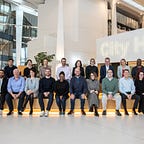23 councils, universities back City Hall bid for 5G testbeds in London
Sara Kelly, lead for digital connectivity at City Hall, on London’s ambitious new bid for government funding for 5G.
This week the Greater London Authority submitted an application for the LDN:5G programme, to the Department for Digital, Culture, Media and Sport (DCMS) for the 5G Urban Connected Communities Project.
The LDN:5G programme establishes a smart Urban Connected Community on a massive scale with almost 6 million people and more than 500,000 business units stretching across Greater London.
The funding for the project will come from the £200m of investment that has been allocated to DCMS’s 5G Testbeds and Trials Programme from the National Productivity Investment Fund (NPIF).
The purpose of the project is to use the latest mobile technologies to meet people’s connectivity needs, trialing new 5G services and applications to individuals and businesses — with the aim of improving the quality of urban life and supporting local economic development.
5G
There is extensive interest in 5G across public sector, private sector, third sector and academia. We wanted to capitalise on this and bring together activities happening across the capital to deliver on key urban challenges.
City Hall’s Connected London team now has established contacts in every borough related to digital connectivity. We had previously used this network to develop a successful bid to the Local Full Fibre Network Challenge Fund, for the Connected London Full Fibre Network (LDN:FFN) programme which uses Transport for London (TfL) core fibre backhaul to deliver a fibre spine through underground assets and to public buildings across 8 partner boroughs.
Building on this we quickly established a number of meetings and a workshop to discuss the prospect of building a London wide community for a 5G programme. After presenting the vision we received incredible support with many local authorities sharing their ambitions and activities, and providing their support from their leadership to the application.
Using extensive connections developed as part of the GLA’s coordination role we approached organisations part of the wider ecosystem including academia, cultural institutions, private sector and others to get their view on how this would complement their activities and deliver on good growth ambitions. Again, the support was extraordinary, with many supporters recognising the opportunity of a LDN:5G programme to deliver benefits for citizens, business, and the whole of the UK.
Through an intense collaboration process over the four weeks we brought together the contributions from partners and intelligence from supporters to develop a comprehensive and cohesive programme which wove together use cases to deliver on challenges, and built upon a framework of policy and infrastructure set out in the Smarter London Together Roadmap.
The bid
The Connected LDN:5G Community (LDN:5G) brings together the diverse strength of London – its boroughs, businesses, citizens and people, communities and universities – to deliver an inclusive vision of a more accessible, creative, developed, healthy, livable, prosperous and resource-efficient city. The Mayor of London has also set out his goal to transform London into the smartest city in the world.
The LDN:5G use cases address citizen-focused challenges derived from the Mayor’s manifesto and in close consultation with London’s boroughs. These challenges include better outcomes in health and social care, wider public engagement in arts and culture, and accessible transport for all.
Following the Smarter London Together Roadmap, and new initiatives like London Office for Data Analytics (LODA), Talk London, and the LDN:FFN, citizen focused challenges would be addressed and the best ideas could be developed, amplified, and scaled. This work would be showcased through a proposed 5G Centre of Excellence in the capital, providing a global showcase for innovation and a physical meeting point for worldwide collaboration.
Collaboration
The Connected LDN:5G Community draw upon an unporecedented gathering of ‘first-mover’ authorities. They include Brent, Camden, City of London, City of Westminster, Ealing, Greenwich, Hackney, Hammersmith & Fulham, Haringey, Havering, Hounslow, Islington, Kensington & Chelsea, Kingston upon Thames, Lambeth, Lewisham, Newham, Richmond, Southwark, Sutton, Tower Hamlets, Waltham Forest, Wandsworth, the Old Oak and Park Royal Development Corporation, the London Legacy Development Corporation and Transport for London.
Should the proposal be successful, we aim for all boroughs to be active participants.
Organisations who expressed interest and support for the LDN:5G application, include CIO Council, South London and Maudsley NHS Foundation Trust, Digital Catapult, Imperial College London, Kings College London, Loughborough University, Ravensbourne University London, University College London, University of Surrey, Room One, Rose Theatre Kingston, Royal Academy of Dramatic Art, Shoal Games, Southbank Centre, Ericsson, Heathrow Airport, HereEast, Huawei, London First, Plexal, EE, and London and Partners.
Shortlist applicants will be notified 26 June 2018. With successful applicants being notified in mid-July 2018. If successful activities funded through the programme will take place between late 2018 to end March 2021.
